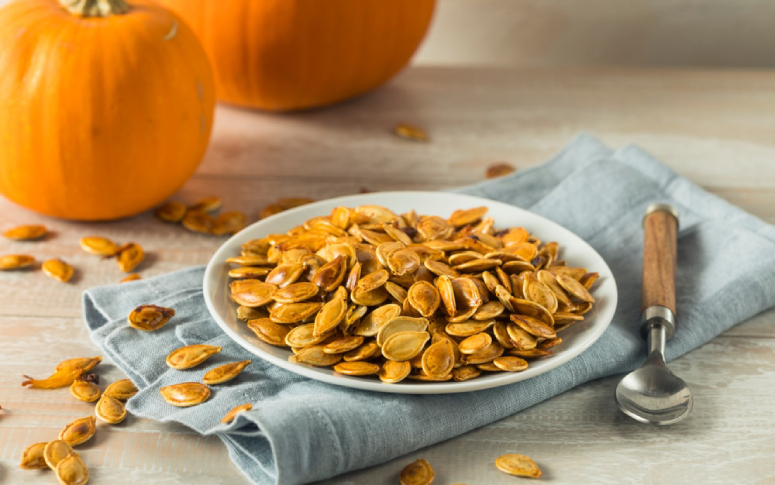1. Turmeric
Turmeric is a common Indian spice, with curcumin being its major component. In fact, the health benefits of turmeric are often attributed to curcuminoids like curcumin and its derivatives.
Thanks to the anti-inflammatory, antioxidant, and lipophilic action of curcumin, it significantly improves cognitive functions in patients with dementia.
Research showed that turmeric powder capsules reduced behavioral symptoms in patients with Alzheimer’s disease.
Another study suggests that turmeric not only decreases dementia-related symptoms but can also be used for preventing various neurodegenerative diseases.

2. Wine
Although it may sound ridiculous, drinking small amounts of red wine offers proven brain health benefits.
While excessive wine consumption could potentially increase the risk of adverse brain outcomes and neurotoxic effects, enjoying a glass of red wine with dinner is good for your health.
The polyphenols in red wine utilize neuroprotective effects, inhibiting brain cell death and considerably reducing cognitive decline.

3. Olive Oil
Extra virgin olive oil is high in polyunsaturated and monounsaturated fats, considered healthy fats. The fatty acids and vitamin E in olive oil have anti-inflammatory effects, can decrease cholesterol levels, and may promote neurogenesis.
While most people use olive oil for heart-related problems, high blood pressure, and diabetes, the study found that individuals who consume some olive oil daily have a 28% lower risk of developing the symptoms of dementia.

4. Dark Chocolate
Dark chocolate is full of flavonoids and is a powerful source of antioxidants. Along with being exceptionally nutritious, consuming dark chocolate can be beneficial for your overall health.
According to research, flavonoids offer neuroprotective actions, including the ability to protect neurons against injuries facilitated by neurotoxins. Besides, they suppress neuroinflammation, promoting cognitive functions and improving memory.
In addition, consuming dark chocolate can enhance blood flow to the brain. As impaired blood flow to your brain can cause brain damage and vascular dementia, eating 20-30 grams of dark chocolate per day could be beneficial.

5. Fatty Fish
Neuroscientists confirm that regular consumption of fish is crucial for brain health. As long as you don’t have any related food allergies, it’s recommended to include fatty fish in your diet
Fatty fish such as salmon, sardines, tuna, and herring are rich in omega-3 fatty acids (EPA and DHA) that support cognitive health and lower the risk for dementia.

6. Green Tea
Green tea is high in plant-based antioxidant compounds called polyphenols. Along with reducing anxiety and stress, green tea can boost cognitive function while promoting focus and attention.
Besides, the research found that L-theanine in green tea can lower the chances of developing cognitive impairment by providing benefits for attention and activating working memory.

7. Broccoli
Broccoli is a low-calorie source of dietary fiber that is rich in glucosinolates. When glucosinolates are consumed, they are converted into isothiocyanates through hydrolysis.
Isothiocyanates that we obtain from broccoli are highly reactive phytochemicals with unique chemical properties. Due to their anti-inflammatory and neuroprotective properties, isothiocyanates can reduce oxidative stress and prevent neurodegenerative diseases like dementia.

8. Pumpkin seeds
Pumpkin seeds contain magnesium, zinc, healthy fats, fiber, protein, vitamins, and minerals. Due to being rich in many antioxidants, pumpkin seeds are renowned for reducing the risk of developing chronic diseases, such as dementia.
Consuming a quarter cup of pumpkin seeds daily can protect your brain cells from disease-causing damage and reduce inflammation. To be more specific, consuming the important nutrients of pumpkin seeds can prevent brain fog, promote optimal brain function, and boost memory.

9. Avocados
Thanks to health-food trends, avocados are widely incorporated into breakfasts and lunches. Along with being absolutely delicious, avocados offer plenty of health benefits.
Being a source of healthy unsaturated fats, vitamins (C, E, K), and antioxidants (riboflavin, magnesium, potassium), avocadoes possess mind-boosting effects.
Research shows that avocado consumers have considerably better cognitive scores than non-consumers.
All things considered, avocado toast or guacamole can support brain function and prevent dementia.

10. Blueberries
Blueberries are widely associated with lowering blood pressure and cholesterol. Along with reducing your risk of developing chronic diseases, blueberries can promote your cognitive functions.
Being among the top antioxidant foods, blueberries protect your body from free radicals that can damage your brain cells and accelerate your brain’s aging process.
While consuming blueberries can prevent cognitive decline, it can also enhance cell signaling and improve memory in older adults with mild cognitive impairment.

11. Nuts
Nuts bring unique health benefits to the table, with walnuts being one of the most influential nuts for brain health. They are packed with DHA (a type of omega-3) that prevents age-related cognitive decline by boosting your brain’s overall performance.
Some other examples include:
- Almonds are known for memory-boosting properties.
- Pistachios preserve fatty acids to prevent inflammation.
- Cashews contain a specific amino acid, L-arginine, which is responsible for enhancing blood circulation to the brain, ensuring a steady supply of oxygen and nutrients.

12. Whole Grains
Whole grains, including quinoa, oats, and barley, contain a high concentration of vitamin Bs that reduce inflammation and preserve memory.
A recent systematic review suggests that whole-grain intake is linked with improved mood and lower anxiety-related scores, which could potentially reduce the risk of cardiovascular disease and cognitive decline.

13. Foods to Avoid
- Alcohol: Drinking too much alcohol can interfere with the brain’s communication pathways, affecting its function and increasing the chances of developing dementia.
- Sugary Drinks: Sugar-sweetened beverages are among the worst foods for your brain. They can increase the risk of brain vascular diseases, each contributing to dementia.
- Red meat: Several observational studies suggest that dietary patterns that are higher in red meat intake can lead to certain cognitive impairments, including dementia.
- Ultra-processed foods: Excessive consumption of ultra-processed foods can contribute to chronic inflammation, which is linked to negative neurologic outcomes, such as cognitive decline and dementia.

Was this page helpful? Give us a thumbs up!












